As the coronavirus outbreak keeps many of us confined to our homes, now may be a unique opportunity to tackle some long-form reading. Here, people from across the Brookings Foreign Policy program offer their recommendations for books to enrich your understanding of the world outside your window.
Madiha Afzal recommends
Boko Haram: The History of an African Jihadist Movement
 This is a very lucid book by Alexander Thurston on Boko Haram’s deadly terrorist insurgency in Nigeria. Boko Haram has killed tens of thousands of people and displaced more than two million others, but has not received enough attention globally, including from academics. Nigeria is the seventh most populous country in the world; it is about half Muslim and half Christian, and its post-colonial conception of nationalism conceals dangerous fissures. This book provides a comprehensive treatment of Boko Haram’s origins, and also situates the group within Nigeria’s complicated and little-understood political context.
This is a very lucid book by Alexander Thurston on Boko Haram’s deadly terrorist insurgency in Nigeria. Boko Haram has killed tens of thousands of people and displaced more than two million others, but has not received enough attention globally, including from academics. Nigeria is the seventh most populous country in the world; it is about half Muslim and half Christian, and its post-colonial conception of nationalism conceals dangerous fissures. This book provides a comprehensive treatment of Boko Haram’s origins, and also situates the group within Nigeria’s complicated and little-understood political context.
Daniel Byman recommends

The Caravan: Abdallah Azzam and the Rise of Global Jihad
Thomas Hegghammer tells the story of the origins of the modern Sunni jihadi movement through the biography of Abdallah Azzam, one of its first leaders. Azzam was a scholar, a preacher, an organizer, a warrior, and many other things, and his call to action inspired thousands to join the anti-Soviet fight in Afghanistan. Azzam’s life is fascinating, and by examining it Hegghammer explains why and how the Sunni jihadi movement emerged when it did — the origin story of a movement that would produce groups like al-Qaida and the Islamic State.
Adrien Chorn recommends
Aid Dependence in Cambodia: How Foreign Assistance Undermines Democracy
 This book by Sophal Ear is a good start for those who want context and exposition to Cambodia’s decline in democracy and good governance after the massive effort of the international community to restore peace and stability to the post-conflict state. It is also good for those who are interested in the impacts of aid on governance in general. In this case, the author articulates how the international community unfortunately set a precedence for aid dependence in the country that curtailed sustainable and diverse development, weakened the rule of law, and reduced governmental accountability. The book also explains how a country that has sustained one of the highest economic growth rates in the world can also simultaneously be “one broken government away from disaster.”
This book by Sophal Ear is a good start for those who want context and exposition to Cambodia’s decline in democracy and good governance after the massive effort of the international community to restore peace and stability to the post-conflict state. It is also good for those who are interested in the impacts of aid on governance in general. In this case, the author articulates how the international community unfortunately set a precedence for aid dependence in the country that curtailed sustainable and diverse development, weakened the rule of law, and reduced governmental accountability. The book also explains how a country that has sustained one of the highest economic growth rates in the world can also simultaneously be “one broken government away from disaster.”
Sam Denney recommends
Our Man: Richard Holbrooke and the End of the American Century
 Told from the perspective of a Marlow-esque narrator, this book is equal parts an exploration of a deeply flawed yet brilliant American career diplomat, and a scathing discussion of the hubris and blind potential of U.S. foreign policy from the 1960s to the 2000s. Through Packer’s “Our Man,” Holbrooke’s supreme lack of self-awareness, unrelenting belief in himself (maybe better described as arrogance), and dogged determination to solve hard problems become stand-ins for the same qualities in the United States. At the end of the day, the book is also a joy to read, a work of biography that reads at the pace of a vivid novel.
Told from the perspective of a Marlow-esque narrator, this book is equal parts an exploration of a deeply flawed yet brilliant American career diplomat, and a scathing discussion of the hubris and blind potential of U.S. foreign policy from the 1960s to the 2000s. Through Packer’s “Our Man,” Holbrooke’s supreme lack of self-awareness, unrelenting belief in himself (maybe better described as arrogance), and dogged determination to solve hard problems become stand-ins for the same qualities in the United States. At the end of the day, the book is also a joy to read, a work of biography that reads at the pace of a vivid novel.
Katherine Elgin recommends

Mr. Putin: Operative in the Kremlin
I just re-read “Mr. Putin,” and it is as relevant today as it was when it was originally published — perhaps even more so. Brookings Senior Fellow Fiona Hill and Cliff Gaddy have woven together a brilliant and rigorous analysis of the man who rules Russia, made even more salient by recent developments. It’s a timeless book, and an easy read to boot, with beautiful prose and clear takeaways.
James Goldgeier recommends
The Back Channel: A Memoir of American Diplomacy and The Case for Its Renewal
 Ambassador William J. Burns, who held a wide array of high-level positions at the State Department and overseas during the course of his foreign service career, has written a wonderful memoir. The book provides insights into the personalities and processes that produced some of the most consequential U.S. foreign policies over more than three decades, and Burns reflects deeply on a range of issues of global significance in which he participated, such as the momentous series of events surrounding the end of the Cold War, the failed U.S.-led efforts to forge a lasting peace between Israelis and Palestinians, the rise and fall of U.S.-Russia relations, the mission to kill Osama bin Laden, and the negotiations to halt the Iranian nuclear program. He has also posted online nearly 100 declassified cables and memos he wrote during his illustrious career.
Ambassador William J. Burns, who held a wide array of high-level positions at the State Department and overseas during the course of his foreign service career, has written a wonderful memoir. The book provides insights into the personalities and processes that produced some of the most consequential U.S. foreign policies over more than three decades, and Burns reflects deeply on a range of issues of global significance in which he participated, such as the momentous series of events surrounding the end of the Cold War, the failed U.S.-led efforts to forge a lasting peace between Israelis and Palestinians, the rise and fall of U.S.-Russia relations, the mission to kill Osama bin Laden, and the negotiations to halt the Iranian nuclear program. He has also posted online nearly 100 declassified cables and memos he wrote during his illustrious career.
Emilie Kimball recommends
Tough Love: My Story of the Things Worth Fighting For
 Former National Security Advisor Susan Rice (also previously a senior fellow at Brookings) combines remarkable storytelling with striking analysis of our nation’s foreign policy in this book. Having the extraordinary good fortune to call her my boss while serving at the National Security Council (NSC), it is a delight to relive the memories of traveling to Kenya with Barack Obama on his first trip as president; establishing normal diplomatic relations with Cuba; transcribing phone calls with Vladimir Putin; and revolutionizing the NSC holiday party where Ambassador Rice led the dancing. The book offers her unique perspective into the national security decisionmaking process and the importance of surrounding yourself with colleagues at every step of the way who give you tough love.
Former National Security Advisor Susan Rice (also previously a senior fellow at Brookings) combines remarkable storytelling with striking analysis of our nation’s foreign policy in this book. Having the extraordinary good fortune to call her my boss while serving at the National Security Council (NSC), it is a delight to relive the memories of traveling to Kenya with Barack Obama on his first trip as president; establishing normal diplomatic relations with Cuba; transcribing phone calls with Vladimir Putin; and revolutionizing the NSC holiday party where Ambassador Rice led the dancing. The book offers her unique perspective into the national security decisionmaking process and the importance of surrounding yourself with colleagues at every step of the way who give you tough love.
JAMES KIRCHICK RECOMMENDS
And the Band Played On
 The definitive book on the early years of the last great epidemic to hit America, “And the Band Played On” is an epic account of the politics and personalities that shaped America’s response, or lack thereof, to AIDS. Written by Randy Shilts, the first and, for a long time, the only reporter on the AIDS beat and the most consequential gay journalist of the 20th century, it spares no one — the government, the media, the gay community — in its harsh assessment. Watching people gather in large crowds these past few days in defiance of scientific advice and plain good sense, I am haunted by similar warnings that went unheeded to stanch the spread of HIV. So, too, are there echoes of the Reagan administration’s lackluster response. It even features a young NIH researcher named Anthony Fauci.
The definitive book on the early years of the last great epidemic to hit America, “And the Band Played On” is an epic account of the politics and personalities that shaped America’s response, or lack thereof, to AIDS. Written by Randy Shilts, the first and, for a long time, the only reporter on the AIDS beat and the most consequential gay journalist of the 20th century, it spares no one — the government, the media, the gay community — in its harsh assessment. Watching people gather in large crowds these past few days in defiance of scientific advice and plain good sense, I am haunted by similar warnings that went unheeded to stanch the spread of HIV. So, too, are there echoes of the Reagan administration’s lackluster response. It even features a young NIH researcher named Anthony Fauci.
Caroline Klaff recommends
A Thousand Splendid Suns
 I highly recommend Khaled Hosseini’s novel “A Thousand Splendid Suns” (especially the audiobook version, read by Atossa Leoni). Following the intersecting stories of two young women in Afghanistan from the 1970s through the early 2000s, this book contends with themes of domestic violence, famine, and war, amid a rotating cast of combatants, both local and international — including the Soviet-backed communists, the Mujahideen, the Taliban, and “the Americans.” As a young woman working in foreign policy who has grown up with the global war on terror, this book puts a relatable, human face on the consequences of decades of violence and political instability.
I highly recommend Khaled Hosseini’s novel “A Thousand Splendid Suns” (especially the audiobook version, read by Atossa Leoni). Following the intersecting stories of two young women in Afghanistan from the 1970s through the early 2000s, this book contends with themes of domestic violence, famine, and war, amid a rotating cast of combatants, both local and international — including the Soviet-backed communists, the Mujahideen, the Taliban, and “the Americans.” As a young woman working in foreign policy who has grown up with the global war on terror, this book puts a relatable, human face on the consequences of decades of violence and political instability.
Filippos Letsas recommends
The Year I Was Peter the Great: 1956—Khrushchev, Stalin’s Ghost, and a Young American in Russia
 Embark on a riveting journey to the Soviet Union of 1956 with “The Year I Was Peter The Great,” a memoir written by legendary Marvin Kalb. Relying on a diary he kept as a young diplomatic attaché at the U.S. embassy in Moscow, Kalb has written a remarkable eyewitness account of the year that changed Soviet Russia once and for all, and one that defined the future trajectory of a true icon in American journalism. Full of life, charming anecdotes, and fascinating historical context, the book recounts Kalb’s travels from one end of the changing country to another, and his countless conversations with ordinary Russians — and even Nikita Khrushchev himself, who graciously nicknamed him “Peter The Great.”
Embark on a riveting journey to the Soviet Union of 1956 with “The Year I Was Peter The Great,” a memoir written by legendary Marvin Kalb. Relying on a diary he kept as a young diplomatic attaché at the U.S. embassy in Moscow, Kalb has written a remarkable eyewitness account of the year that changed Soviet Russia once and for all, and one that defined the future trajectory of a true icon in American journalism. Full of life, charming anecdotes, and fascinating historical context, the book recounts Kalb’s travels from one end of the changing country to another, and his countless conversations with ordinary Russians — and even Nikita Khrushchev himself, who graciously nicknamed him “Peter The Great.”
Michael O’Hanlon recommends
Becoming Kim Jong Un
If you’re looking for a great read in coming weeks, try my colleague Jung Pak’s “Becoming Kim Jong Un: A Former CIA Officer’s Insights into North Korea’s Enigmatic Young Dictator.”It’s a riveting history of the young, brash, brutal, and rather clever leader of North Korea. If you got tired of hearing about him in 2017 and want to move onto something else — you may not have that luxury, because he may not move on for half a century from the perches of power in nuclear-armed North Korea, where the United States came fairly close to war just 30 months ago, and could do so again. Jung developed her expertise on this subject as the CIA’s top watcher of Kim for eight years, so in addition to an extremely well written biography, you are getting a sense of how the CIA researches, studies, and thinks about the world’s most dangerous people when you read this book.

Des Démocrates en Amérique
“Becoming Kim” is not due out until April 28, however, so before that, and if you read French, you may want to check out Célia Belin’s “Des Démocrates en Amérique: L’heure des choix face à Trump,” the best thing about the Democratic presidential primary campaign of 2020 that I’ve read. Celia focused on the big ideas phase of the campaign — when several candidates and several worldviews competed for the hearts and minds of voters in Iowa and New Hampshire, before the horse race took over. This Frenchwoman understands us amazingly well!
Ted Reinert recommends
The Last Palace
 Our Brookings Governance Studies colleague Norman Eisen served as U.S. ambassador to the Czech Republic from 2011 to 2014, and in “The Last Palace,” he tells the story of Czechoslovakia and Europe’s turbulent 20th century through the lens of the truly unique U.S. ambassador’s residence in Prague. The eccentric and extraordinarily successful Jewish businessman Otto Petschek built this curved mansion in the capital of this new state in the heart of Europe in the interwar period. It was subsequently lived in by a German general during the war, the postwar U.S. ambassador who tried to prevent the country from falling to Soviet dominance, and Shirley Temple Black, the former child movie star who witnessed both the crushing of Prague Spring in 1968 and the dramatic Velvet Revolution and eventual triumph of democracy in 1989 when she returned to Prague as U.S. ambassador. Of course, history didn’t end in 1989, and the book is also a warning about the fragility of democracy and rule of law. It’s beautifully written, and personal — we follow not only the story of financial barons, generals, and diplomats, but also the journey of Eisen’s mother from being a young Jewish woman of very modest means in the turbulent Czechoslovakia of the 1930s and 1940s to seeing her son move to Prague as her adopted country’s ambassador. For those who enjoy reading about European history, “The Last Palace” is a gem.
Our Brookings Governance Studies colleague Norman Eisen served as U.S. ambassador to the Czech Republic from 2011 to 2014, and in “The Last Palace,” he tells the story of Czechoslovakia and Europe’s turbulent 20th century through the lens of the truly unique U.S. ambassador’s residence in Prague. The eccentric and extraordinarily successful Jewish businessman Otto Petschek built this curved mansion in the capital of this new state in the heart of Europe in the interwar period. It was subsequently lived in by a German general during the war, the postwar U.S. ambassador who tried to prevent the country from falling to Soviet dominance, and Shirley Temple Black, the former child movie star who witnessed both the crushing of Prague Spring in 1968 and the dramatic Velvet Revolution and eventual triumph of democracy in 1989 when she returned to Prague as U.S. ambassador. Of course, history didn’t end in 1989, and the book is also a warning about the fragility of democracy and rule of law. It’s beautifully written, and personal — we follow not only the story of financial barons, generals, and diplomats, but also the journey of Eisen’s mother from being a young Jewish woman of very modest means in the turbulent Czechoslovakia of the 1930s and 1940s to seeing her son move to Prague as her adopted country’s ambassador. For those who enjoy reading about European history, “The Last Palace” is a gem.
Bruce Riedel recommends
The Guns of August
 My favorite book is Barbara Tuchman’s classic “The Guns of August.” She recounts the drive towards World War One in August 1914. The narrative is beautifully written and engaging. The message is clear: War plans developed long before the war drove events on the ground relentlessly. Train schedules for mobilization and deployment of the armies mattered far more than the efforts of political leaders and diplomats to avert catastrophe. The result of the events of August 1914 was a global conflict that killed and wounded tens of millions. It began a century of conflict proceeding through World War II and the Cold War. Tuchman explains why it all began. “The Guns of August” came out in the early 1960s. President John F. Kennedy was so impressed by it that he ordered the Pentagon to send a copy to every general. JFK’s handling of the Cuban missile crisis and the Chinese invasion of India in the fall of 1962 reflected his appreciation of the calamity that initiating conflict can bring. I just read “The Guns of August” for the tenth time, it is that good.
My favorite book is Barbara Tuchman’s classic “The Guns of August.” She recounts the drive towards World War One in August 1914. The narrative is beautifully written and engaging. The message is clear: War plans developed long before the war drove events on the ground relentlessly. Train schedules for mobilization and deployment of the armies mattered far more than the efforts of political leaders and diplomats to avert catastrophe. The result of the events of August 1914 was a global conflict that killed and wounded tens of millions. It began a century of conflict proceeding through World War II and the Cold War. Tuchman explains why it all began. “The Guns of August” came out in the early 1960s. President John F. Kennedy was so impressed by it that he ordered the Pentagon to send a copy to every general. JFK’s handling of the Cuban missile crisis and the Chinese invasion of India in the fall of 1962 reflected his appreciation of the calamity that initiating conflict can bring. I just read “The Guns of August” for the tenth time, it is that good.
Amanda Sloat recommends
The Righteous Mind: Why Good People Are Divided by Politics and Religion
 As all Americans — Republican and Democrat — are having a shared experience in response to coronavirus, now is a good time to consider why our country is so divided and why good people see the world in different ways. “The Righteous Mind” by Jonathan Haidt shows how moral judgments arise from gut feelings rather than reason. He explains why liberals, conservatives, and libertarians have different intuitions about right and wrong, as well as how each group has some valid concerns. These differing views are likely to shape how both parties discuss policy responses to COVID-19.
As all Americans — Republican and Democrat — are having a shared experience in response to coronavirus, now is a good time to consider why our country is so divided and why good people see the world in different ways. “The Righteous Mind” by Jonathan Haidt shows how moral judgments arise from gut feelings rather than reason. He explains why liberals, conservatives, and libertarians have different intuitions about right and wrong, as well as how each group has some valid concerns. These differing views are likely to shape how both parties discuss policy responses to COVID-19.
The Brookings Institution is committed to quality, independence, and impact.
We are supported by a diverse array of funders. In line with our values and policies, each Brookings publication represents the sole views of its author(s).





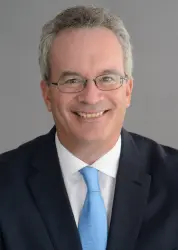
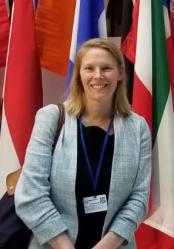
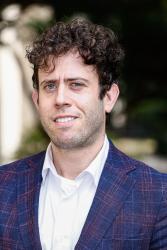
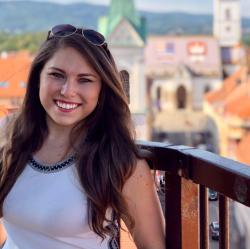
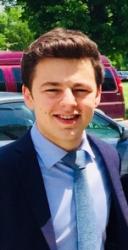







Commentary
A reading list from Brookings Foreign Policy while you practice social distancing
March 20, 2020